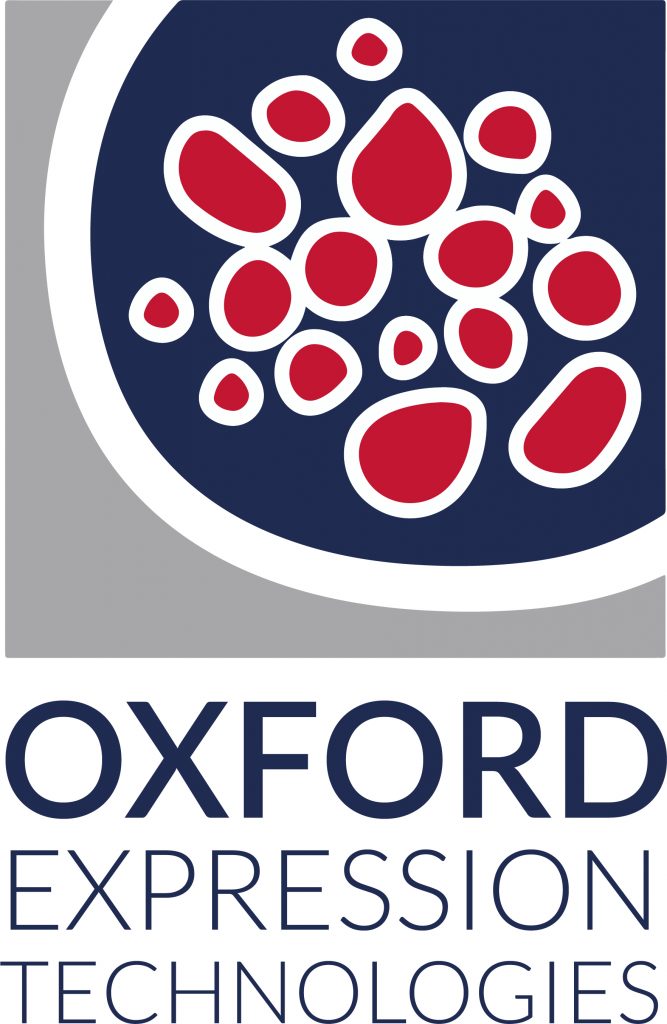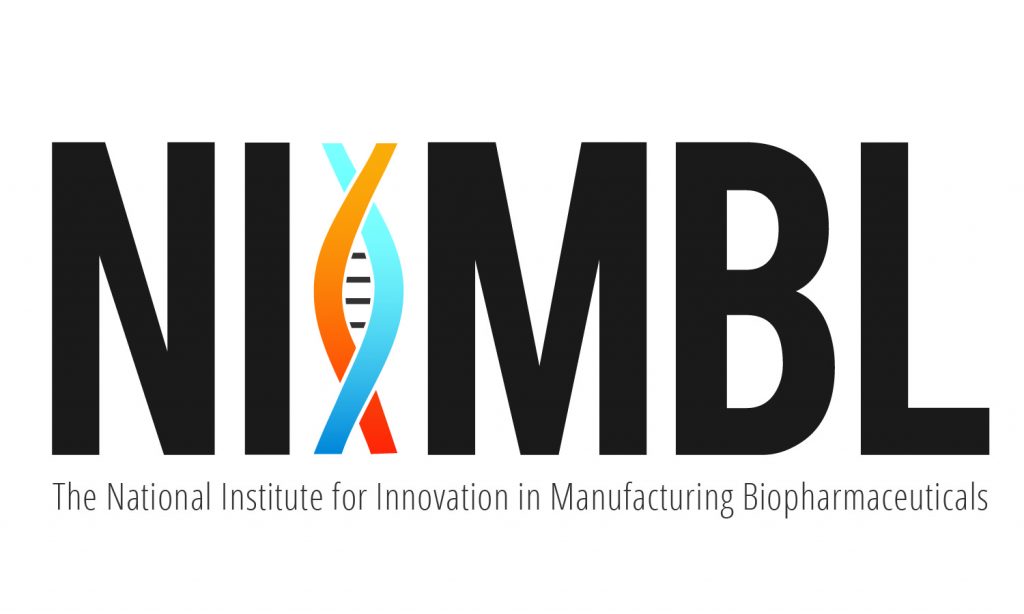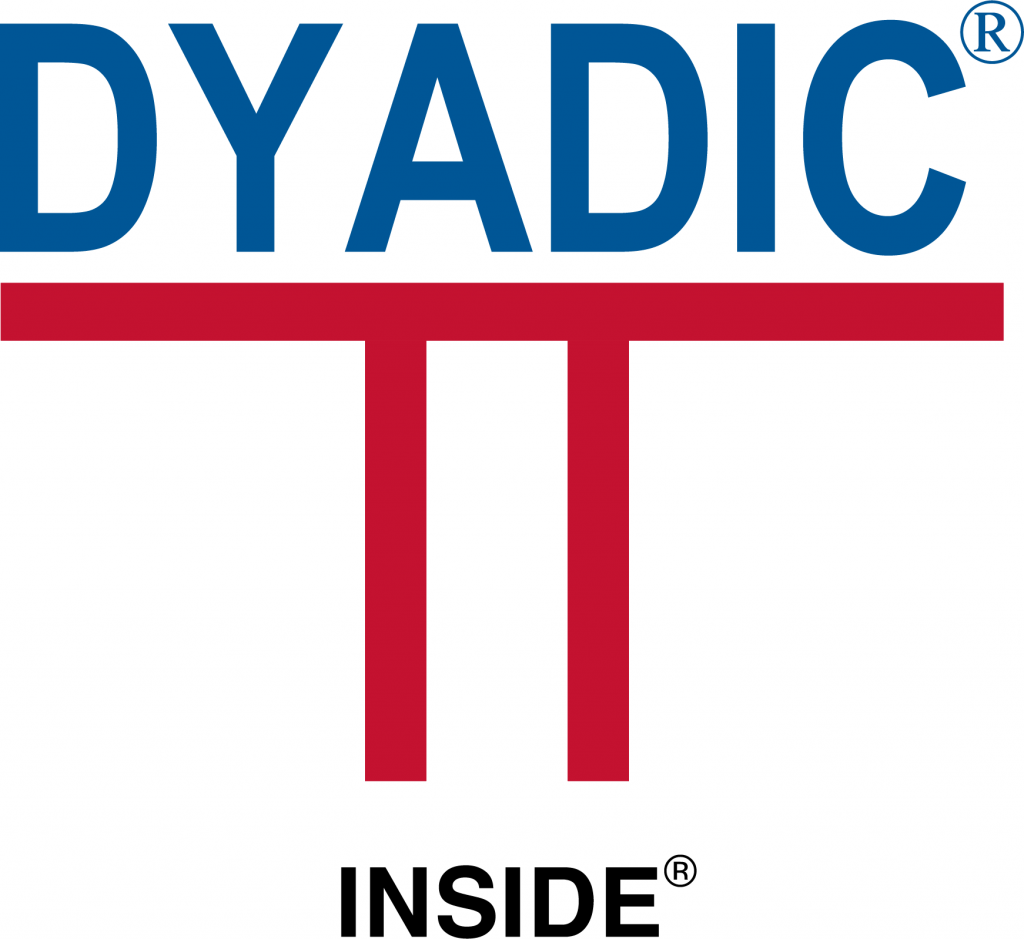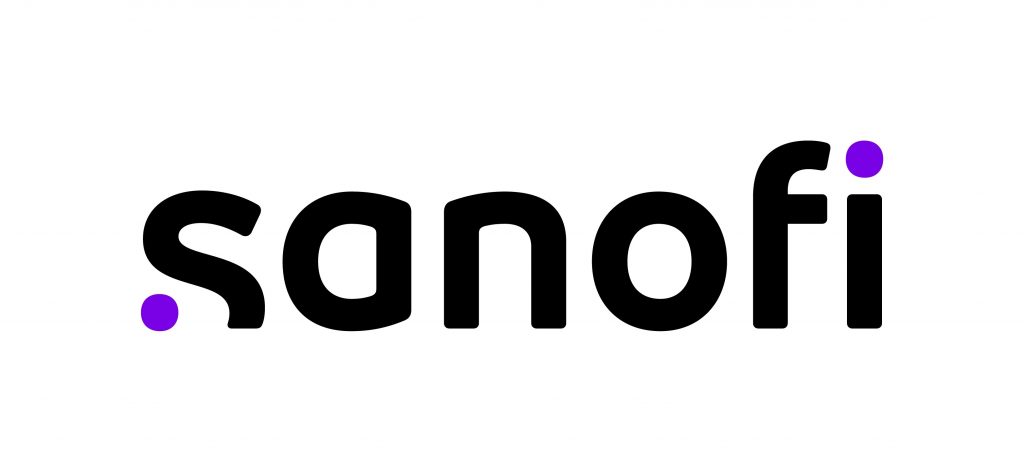
May 19 – 24, 2024
Los Cabos, Mexico
Register Now for In Person
(Early Bird Deadline: March 22, 2024)
Schedule at a Glance (May 2, 2024) [PDF]
Register Now for Virtual Component
About This Conference
The Vaccine Technology Conference focuses on the discovery, development and manufacture of vaccines. A unique conference series that convenes and connects global experts in the vaccine field to discuss and address the technologies to advance vaccines for global needs. The conference offers high-quality scientific content from leaders in academia, industry, government and not-for-profit global health organisations. The participants at these conferences share a common goal – Advancing Vaccine Technologies for a Healthier World.
Conference Organization
Chairs

Charles Lutsch, PhD
Associate Vice President
Research Portfolio Strategy R&D
Sanofi-Vaccines, France

Linda Lua, PhD
Professor Emeritus, The University of Queensland, Australia
Director, The Growth Impact, Australia

Francesc Gòdia, PhD
Full Professor of Chemical Engineering
Universitat Autònoma de Barcelona (UAB), Spain

Tara Tagmyer, PhD
Scientific Director Research and Development
Center for Vaccine Innovation
PATH, USA
Keynote Speakers

Michael Anyadiegwu (CMC Technology Lead, CEPI)
Title: The need for manufacturability speed

Albert Osterhaus (University of Veterinary Medicine Hannover)
Title: Animal, Human and Environmental Health, they are all connected

Katey Owen (Bill & Melinda Gates Foundation)
Title: Enabling vaccine technologies to save more lives

David Kaslow (Office of Vaccines Research and Review, US FDA)
Title: TBA
Program
Conference Sessions
1. Novel Expression Systems and Innovative Platforms
Chairs: Florian Krammer (Icahn School of Medicine at Mount Sinai) and Tania Pereira Chilima
The 2020 SARS-Cov-2 pandemic was a catalysts for vaccine innovation. This session will give an overview of the latest advances in vaccine expression systems, innovative platforms for novel vaccines, novel technologies and manufacturing strategies. Many different new platforms have been moved forward during the SARS-CoV-2 pandemic, have been tested in clinical trials and some have made it to the market. Moreover, the manufacturing capacity needs and speed to clinic as also triggered innovation across process and equipment development. Here we will discuss what we learned and what can be successfully applied broadly to vaccine development in the future.
Lead Speaker

Icahn School of Medicine, USA
Title: A next generation of COVID-19 vaccine based on the Newcastle disease virus (NDV) vector
2. Vaccine Manufacturing
Chairs: Stefanie Frank (UCL) and Jason He (WuXi Vaccines)
The development and manufacture of vaccines evolves as we continue to improve on upstream and downstream production of antigens. Each new antigen and vaccine technology presents unique challenges. Advancing bioprocessing often requires better understanding of the experimental space which can be achieved through the implementation of high throughput methodologies, machine learning, quality by design approaches and the creation of novel unit operations that can increase the quality and productivity of the process. This session is dedicated to the advances made in bioprocessing for vaccine development and manufacture.
Lead Speaker

Univercells Technologies by Donaldson, Belgium
3. Nucleic Acid-based Vaccines
Chairs: Sudha Chivukula (Sanofi) and Shobha Vasudevan, Harvard Medical School
Experts will discuss current learnings and latest innovation on DNA and RNA-based vaccines. Presentations will cover topics related to design, delivery, development, manufacturing, and regulatory requirements for nucleic acid-based vaccines. Proof-of-concept for next generation vaccines, in the pipeline beyond COVID-19 and elaborations on the prospective improvements will be covered.
Lead Speaker

Zipcode Bio, USA
Title: Empowering Vaccine Efficacy and Distribution: Harnessing Machine Learning for Structural Optimization and Advanced Formulations to Enhance Accessibility
4. One-health
Chairs: Diego Fontana (Universidad Nacional del Litoral and CEVA Sante Animale) and Abby Patterson (Boehringer Ingelheim)
As the global population continues to increase and become increasingly interconnected, the need for effective implementation of the One Health concept becomes more urgent. In this context, vaccines will play a pivotal role in controlling emerging zoonotic diseases and fighting antimicrobial resistance. In this session, we will focus on innovative approaches for developing new vaccine candidates or vaccine production processes that positively impact the health of humans, domestic and wild animals, plants, and the wider environment.
Lead Speaker

Boehringer Ingelheim Animal Health USA, Inc.
Title: The Role of Vaccines in Controlling Emerging Diseases
5. Analytical Technology and Vaccine Analytics
Chairs: Laura Cervera Gracia (UAB) and Isabelle Knott (GSK)
Analytical characterization of vaccines is a critical aspect to ensure their efficacy and safety. It encompasses all in vitro and in vivo assays to evaluate the biological, chemical, and physical properties of a vaccine. In-depth characterization of vaccines provides an understanding of their function, potency and toxicity. It also provides means to understand how manufacturing processes influence the vaccine quality. In addition, bio-analytical characterization plays a critical role in establishing comparability of the product when produced with different process, scale and site.
Lead Speaker

Direxa Consulting LLC, USA
Title: Analytical Characterization in an Era of Precision Vaccinology
6. Formulation and Stability
Chairs: Antonio Roldao (iBET) and Jeff Blue (Merck)
To bring a vaccine from concept to commercialization takes considerable time and requires the formulation scientist to explore multiple compositions, delivery methods, and drug product images as part of the Target Product Profile. As there is a clear driver to continue expanding vaccine coverage and accessibility globally, not only is the formulation composition critical, but exploring new ways to increase immunogenicity (i.e., novel adjuvants) is important in vaccine formulation development. Novel formulations and adjuvants can lower vaccine costs, availability, and decrease the cold-chain requirements critical for increased vaccine access. During this session, the selection and validation of a given formulation composition and novel adjuvant technologies will be explored.
Lead Speaker

Croda Pharma, Denmark
Title: Improving vaccine efficacy through rational formulation design
7. Regional Development and Manufacturing of Vaccines
Chairs: Leda Castilho (Federal University of Rio de Janeiro) and Raman Rao (Hilleman Laboratories)
The COVID-19 pandemic has highlighted the need for geographically distributed manufacturing of vaccines, but has also shed light on the gaps in development and manufacturing capabilities in several regions of the world, especially in low- and middle-income countries. Among possible solutions, we could cite the adoption of platform technologies, flexible manufacturing strategies, technology transfers and partnerships with established manufacturers, along with local capacity building and creation of local R&D capabilities. Although centralized manufacturing provides economies of scale, using novel technologies and organizing vaccine production in campaigns may turn distributed manufacturing economically sustainable, while stimulating production of specific vaccines to meet regional needs and enhancing preparedness for future pandemics.
Lead Speaker

Access to Advanced Health Institute, USA
Title: Accelerating Access to Sustainable Vaccine Adjuvant Technology
8. Devices and Delivery
Chairs: Martina Micheletti (UCL) and Megan Polidano, Vaxxas
New vaccine device and delivery technologies could open doors to better efficacy (for example against mucosal pathogens), better safety & tolerability, and new needle-free vaccine programme options, such as self-vaccination at home. This session will highlight some of the most exciting efforts currently underway to progress development of technologies such as patches, sprays, implants and capsules, and examine the benefits these technologies can offer for global vaccine access and equity. (Keywords: delivery technologies, devices, vaccine)’.

BDO, USA
Title: Advances in alternative routes of vaccine administration, and continued challenges
Poster Session
Chairs
António Roldão (iBET, Portugal)
Laura Cervera Gracia (Universitat Autònoma De Barcelonna, Spain)
Diego Fontana (Universidad Nacional Del Litoral, Argentina)
Poster Guidelines [PDF]
Your poster should be no larger than
1.5 meter high and 1.0 meter wide (Portrait Style)
Workshops
I. Advanced training of vaccine manufacturing workforce for sustainable pandemic preparedness
Tuesday 10:30-12:00
Chair: Amine Kamen, McGill University
For better pandemic preparedness, governmental authorities and international organizations are heavily investing in building local capacities for vaccine and biomedicines manufacturing. Training of work force remains a key success factor for the sustainable operations of this capacities and their effectiveness for rapid response to emerging or re-emerging infectious diseases.
Highly qualified personnel in biomanufacturing are needed globally, therefore concerted efforts should be deployed to address these needs.
This workshop invites for discussions of recent training initiatives deployed by different organizations in US, Canada and Europe through academic and not-for profit organizations, as well as WHO initiatives. Importantly, recent initiatives in Africa, exemplified by the human capital development strategy at “Institut Pasteur de Dakar” will be presented.
The goal of the workshop, beyond sharing good practises and supporting material is to promote collaborative efforts in creating value for the effective training of new generation of vaccine manufacturing workforce building on integration of all training models and platforms.
Introduction: Chair: Amine Kamen, McGill University, Canada
African Initiative: Institut Pasteur of Dakar (IPD), Senegal example of building capacity and developing human capital to meet the needs of African countries, Dr. Amadou Alpha Sall, CEO of IPD,
Central and South American perspectives, (Laura Palomares, UNAM, Mexico and Leda Castilho, UFRJ, Brazil)
Asian perspective with Alice (Eunju) Lee, International Vaccine Institute (IVI), S. Korea.
US perspective with the National Institute for Innovation in Manufacturing Biopharmaceuticals (NIIMBL), Kelvin Lee, Institute Director, USA
World Health Organization (WHO): Current initiatives to address the global needs, Jicui Dong, WHO, Geneva, Switzerland.
II. Innovations in Global Health
(90min)
Chairs: Rajeshwari Adhiseshan (BMGF) and Tarit Mukhopadhyay (Merck)
Vaccination is considered the most successful healthcare initiative in disease prevention, but achieving universal coverage is still beyond reach. Partly due to the disruptive nature of the Covid-19 pandemic, latest trends indicate a backsliding on childhood vaccinations. According to UNICEF 23 million children missed out on basic childhood vaccines through routine health services in 2020.
This workshop will provide a valuable forum for stakeholders in the vaccine technology field to share their experiences, learn from one another, and identify ways to work together more effectively.
This interactive workshop will cover four broad themes.
- The importance of partnerships in global health: discussion on the role of partnerships in promoting health equity and improving health outcomes, particularly in low- and middle-income countries.
- Successful partnership models: The workshop will showcase successful partnership models from past vaccine development and delivery initiatives. Participants to examine the factors that contributed to the success of these partnerships and identify ways to replicate them in future projects.
- Challenges and opportunities in partnerships: Participants explore the challenges that arise in partnerships, such as conflicting priorities, and resource constraints and how best to address these challenges and capitalize on the opportunities that partnerships provide.
- Best practices for engaging in meaningful partnerships: The workshop could provide participants with practical tips for engaging in partnerships and outline some of the funding opportunities and priorities for partnerships in global health.
III. A blueprint for accelerating vaccine development and deployment
Chair: Laura Palomares, UNAM and Michael L. King , Scientific Advisory Committee of CEPI
You are developing a new vaccine. Preclinical data looks promising, and a decision is needed to invest your limited resources best. Should you proceed to clinical trials as soon as possible? What are the requirements to proceed to the first-in-human trial? What are the minimum CMC, quality, and analytical requirements to proceed to the different phases of clinical evaluation? Which are the different scenarios determining the vaccine development blueprint? Is your vaccine for emergency/seasonal/routine application? What economic, regulatory, and public health aspects determine vaccine development and deployment? These and other topics related to creating a vaccine development and deployment blueprint will be discussed
Presentations by Nedim Altaras (Moderna, USA), Sergio Valentinotti (Laboratorios Liomont, Mexico) and Darrin Cowley (AstraZeneca, USA) will be followed by an interactive discussion.
IV. Bringing vaccines into market – this is how we do it.
Chair: Manon Cox, NextWaveBio
Taking a vaccine candidate from idea through to commercialization is quite a journey. This interactive workshop features five innovators involved in various stage of vaccine and related analytical tool development who will present their product development plans (and challenges) in approximately 5-7 minutes. Each presentation is followed by a Q&A session of 8-10 minutes, where our panel members each with unique experience in vaccine development will challenge and provide valuable feedback to the presented scenarios from vaccine development to supporting business model. We encourage participants to provide feedback and/or ask questions as well!
Our innovators presenting in this session are:
- Axel Lehrer – Professor Hawaii University with a dream to develop a vaccine. The vaccine candidate is at the preclinical stage.
- Peter Leonardi – CEO OmniCyte, a start-up with a technology platform also at the preclinical stage.
- Garry Morefield – President Vaxform, a start-up with an oral delivery platform and one human clinical study under its belt.
- Sandra Depelsenaire – Preclinical Team Lead will speak about Vaxxas’ journey.
- Erica Dawson – Chief R&D Officer on the path to success of InDevR, a Life Science tools company offering multiplexed, microarray-based analytical solutions.
Our expert panel is composed of:
- Daniel Adams (former venture capitalist and founder of multiple successful companies)
- Barry Buckland (former Merck executive with extensive product development expertise)
- Laura Palomares (Director UNAM, former advisor to Cofepris, Flublok process development)
- Ab Osterhaus (Academic with successful track record in founding multiple companies).
Call for Abstracts
Descriptions of the Sessions You may pick one or two sessions that you feel your work fits best.
- Oral abstract submission deadline:
27 November 2023 - Poster abstract submission:
OPEN - Abstract acceptance notification sent on:
06 December 2023.
Please log on HERE to see your acceptance status.
Please prepare your abstract according to this template: docx or doc.
All abstracts should be submitted electronically HERE.
Only a limited number of oral presentation slots are available and thus all submissions for oral sessions will be considered for both oral and poster presentation.
Conference Fees and Registration
Conference Fees
All conference fees are inclusive. They include registration, accommodations (nights of Sunday May 19, Monday May 20, Tuesday May 21, Wednesday May 22, and Thursday May 23), all meals, taxes, roundtrip airport transportation and gratuities from lunch on Sunday through lunch on Friday. Incidental fees (telephone calls, faxes, spa, laundry, minibar etc.) are billed to your personal account by the hotel.
The conference will be held at the Secrets Puerto Los Cabos Resort Hotel which is located in front of the Sea of Cortez. It is an adult-only oceanfront all-suite hotel.
ALL PARTICIPANTS (INCLUDING MEMBERS OF THE ORGANIZING COMMITTEE AND INVITED SPEAKERS) ARE REQUIRED TO REGISTER.
The conference fees are:
| Register March 22, 2024 | |
| Participant (single occupancy, not bringing a guest) | US $3,940 |
| Participant (double occupancy – sharing a room with another participant (booked separately), additional fee (see below)) | US $2,780 |
| Bona fide Graduate Student (single occupancy, not sharing with another participant or bringing a guest) (Those in this category must upload proof of current status during registration – copy of current Student ID or a letter from your University confirming your student status) | US $3,425 |
| Bona fide Graduate Student (double occupancy – sharing a room with another participant (booked separately) OR bringing a guest, additional fee (see below)) (Those in this category must upload proof of current status during registration – copy of current Student ID or a letter from your University confirming your student status) | US $2,265 |
| **Fees for Guest/accompanying person sharing bedroom with a participant. (Includes all conference included meals) | US $1,390 |
Conference Registration
You will need a login name and password to register for ECI conferences through our online system. If you have been a recent participant at an ECI conference or have submitted an online application or request for information about an ECI Conference, you may already have an account with us. If you know your login information, please use it.
If you are not sure whether you already have a login and password, please click on automated password retrieval and enter your e-mail address before creating a new account. If we don’t have a valid email address on file for you, a pop-up window will appear stating that no records were found. Click “OK” and then follow the instructions to create a new account. If you have any questions or experience any difficulties, please email Renee Smith.
Virtual Component
It is only a short time to the start of the ECI Vaccine Technology IX conference and we are excited by the incredible line up of speakers, poster presenters and workshops.
To expand access to this important meeting we will allow virtual access to a portion of the conference for those unable to attend.
Each day, Monday through Thursday between 08:30 and Noon (Mountain Standard Time), the morning session of the conference program will be live streamed. These sessions will engage several of our keynote speakers, invited talks, and workshop sessions (please check the program for complete details).
If the topics are of interest and you wish to access this part of the conference virtually, please register for Virtual Conference Access. The fee for virtual access is $400. Those who reside in low and middle income countries can register at a reduced fee of $100. The reduction is possible thanks to support from the Bill & Melinda Gates Foundation.
Special Notes and Payment Instructions
We suggest that you register as soon as possible to be certain that you will have a hotel room at the conference rate.
All participants are encouraged to register before March 22, 2024. There is a discounted price for registering before this date. Hotel space cannot be guaranteed for registrations received after March 22, 2024. Your registration is not officially confirmed until we receive payment of the amount due. ECI reserves the right to cancel your room registration if payment is not received. Your invoice/receipt will automatically be e-mailed upon of receipt of your registration. Should you need a signed receipt or a certificate of attendance (sent after the conclusion of the conference), please contact Renee Smith.
Because of contractual guarantees made with the hotel for room and meal functions, no shows, late arrivals, missed meals and early departures cannot receive fee adjustments. If you have a disability and may require accommodation in order to participate fully in this conference, please indicate this when you register. An ECI representative will contact you to discuss your specific needs. If you have special dietary requirements (e.g., vegetarian or a food allergy), please make a note on your registration. The chef needs to know this information in advance if we are to accommodate you. ECI will attempt to accommodate special requests such as Kosher or Halal meals, but such meals may not be available at all conference sites. The participant must pay any additional costs for special meal requests that ECI pays a surcharge for.
Payment must be made by credit card (Visa, MasterCard, and Amex), check or money order drawn on a U.S. bank in U.S. dollars, payable to ENGINEERING CONFERENCES INTERNATIONAL. Checks or money orders in any other currencies are NOT ACCEPTABLE. Payment must be made on the web site except for those who are sending payment by wire transfer or have a purchase order from their company/institution.
WIRE TRANSFER PAYMENT: If you are planning to make payment by wire transfer, please contact Renee Smith for the bank information. You must add $30 to cover ECI bank charges. Please reference your full name and the conference title. Please email a scanned copy to Renee Smith. This is very important – otherwise it is extremely difficult to trace your payment and you may not receive a receipt prior to the conference.
Cancellation Policy: Cancellation must be received by ECI in writing at least 28 days prior to the start of the conference in order for a full refund (less a processing fee) to be considered. The ECI auditors require that refunds for all conference cancellations be processed after the conference so that the necessary back-up information (e.g., hotel list of those in-house) can be attached to the refund request and ECI can verify that the hotel has not charged a cancellation fee.
Cancellation fees:
- Cancellations received more than 28 days prior to the conference start date are subject to a processing fee of 4% of the total fee, plus any direct expenses incurred by ECI.
- Cancellations received 15 – 28 days prior to the conference start date are subject to a $250 cancellation fee plus any direct expenses incurred by ECI.
- Cancellations received 8 – 14 days prior to the conference start date are subject to a $500 cancellation fee plus any direct expenses incurred by ECI.
- No refunds will be issued for cancellations received less than 7 days prior to the conference start date.
- No refunds will be issued due to inclement weather or travel disruptions/cancellations.
Registrations may be transferred without incurring any penalty or cancellation fee.
Denied or delayed visa
If a participant is forced to cancel due to a denied or delayed entry visa, ECI will issue a full refund if ECI has been notified of a potential visa issue at least four weeks prior to the conference start date.
Change of payment method
If an attendee who has already paid the conference fee with a credit card requests that the fee be refunded to that card so that it can be paid in a different manner (e.g., charged to an alternate credit card, or paid via check or bank transfer), a processing fee of 4% of the total fee amount will apply.
Disclaimer
It may be necessary for reasons beyond the control of ECI to alter the content and timing of the program or the identity of the speakers. In the unfortunate circumstance that an event is cancelled, ECI is not liable for any costs incurred by participants in connection with their attendance.
Smoking is prohibited at ECI conferences and conference functions.
Should you have specific questions regarding your registration, please contact Renee Smith.
Pre and Post Conference Reservation Request
Your registration includes accommodations for the conference period (nights of Sunday May 19, Monday May 20, Tuesday May 21, Wednesday May 22, and Thursday May 23). If you are arriving before May 19 or staying after the conference, you can include your request during online registration. If you are already registered and did not include them in your registration, please contact Renee Smith. ECI does not guarantee pre/post conference reservation. ECI is collecting your pre/post conference reservation requests for the hotel. The hotel will ask for your credit card information at the time of arrival to pay for the pre/post conference night reservations.
Pre-Conference nights: Thursday, May 16; Friday, May 17; Saturday, May 18 SOLD OUT
Post-Conference nights: Friday, May 24; Saturday, May 25; Sunday, May 26 (checking out on Monday, May 27)
Note: Pre/Post night reservations are based upon hotel’s availability. The pre/post conference reservation can be cancelled without penalty until 3 days prior.
Los Cabos

Located at the southern tip of the Baja California peninsula, Los Cabos consists of three distinct areas: Cabo San Lucas, San José del Cabo, and the coastal highway between them, referred to as the Tourist Corridor. The area is served by San José del Cabo International Airport which is located about three miles from San José del Cabo and about twenty miles from Cabo San Lucas.
Los Cabos is a combination of desert, beachfront, and mountain terrain, with the Pacific Ocean on the west side of the peninsula and the Gulf of California, also called the Sea of Cortés, on the east. The warm, dry, sunny climate and beautiful scenery have turned the former fishing village into a popular vacation destination.
Sportfishing, swimming, snorkeling, diving, sailing, and surfing are among the favorite water sports, and on land, visitors play golf and tennis, explore the desert and beach terrain on dune buggies, hike, and ride mountain bikes, horses, and camels. There are top restaurants for both elegant and casual dining.

Geography: The region’s geography is a dynamic mix of unspoiled desert landscape, white beaches and dramatic rock outcroppings. “El Arco,” the distinctive rock arch that sits at the tip of Land’s End, is the most famous geographic landmark of Los Cabos. “El Arco” dips into the sea at exactly the spot where the Pacific Ocean meets the Sea of Cortez. It is the remarkable result of the pounding waters on both sides.
Currency and Time Zone: The Mexican peso is the official currency, but American dollars are also commonly accepted. The time zone is Mountain Time.

Climate and Temperatures: Los Cabos is a subtropical desert. During June, highs can be in the low 30os C (around 86-88oF) with occasional showers and lows of about 19oC (around 66oF).
Local transportation: For transportation from the airport, please see Airport Transfers. Taxis are available at hotel. In San José del Cabo, red and yellow taxi and operate and in Cabo San Lucas, the vans are blue and green – they operate 24 hours a day. The Subucabos buses run between Cabo San Lucas and San José del Cabo every day from about 5:00 am in San José and about 5:20 am in Cabo. They run about every 20 minutes until approximately 9:30 pm.

Outdoor Activities: For those who are able to extend their stay in Los Cabos, the following outdoor recreational activities have proven very popular with visitors: Sport-fishing, hiking, horseback riding, mountain biking, ATV & off-roading, bungee Jumping, camel ride tours, camping, rappelling, zipline.
Safety: Los Cabos has earned the World Travel & Tourism Council’s (WTTC) stamp of approval for its “Safe Travels badge, qualified by adopting WTTC’s standardized health and hygiene protocols across the destination. The seven step-system evaluated and strictly implements health and safety protocols across the airport, transportation, accommodations, restaurants and bars, tour activities, the beach and throughout the local community. Los Cabos has also achieved Sharecare Health Security Verification, becoming the world’s first verified travel destination. This designation signifies that the majority of the hotels and resorts in he destination continue to ensure that their health protocols are in compliance with over 360 expert-validated global standards.Apps to Download: Los Cabos Offline Travel Map (iOs) (offline map, weather, driving routes, hotels, banks, hospitals); Los Cabos Travel Pro (Android) (pre-trip information and reference details for Los Cabos); Art Walk San José del Cabo (iOs) (information on galleries, news, events, photos, maps of the Gallery District).
Conference Hotel

Address
Secrets Puerto Los Cabos Resort Hotel
Avenida Paseo de los Pescadores S/N, 23400
San José del Cabo, B.C.S., Mexico
The conference will be held at the Secrets Puerto Los Cabos Resort Hotel which is located in front of the Sea of Cortez. It is an adult-only oceanfront all-suite hotel with such amenities as free internet access, free parking, fitness center, pool, spa, laundry, golf course, concierge, gourmet a la carte restaurants, bars and lounges. The rooms feature blackout curtains, bathrobes, air conditioning, coffee/tea maker, cable/satellite TV and a whirlpool bathtub.

The hotel is just ten minute rom downtown San José del Cabo and 30 minutes from the Los Cabos International Airport.
Airport and Airport Transfers
The San José del Cabo International Airport (SJD) has recently enjoyed a number of upgrades and expansions, including the addition of a second terminal specifically for international flights to ensure that travelers experience the highest levels of comfort and safety. It is located just 20 minutes north of San José and welcomes domestic, international and private/charter flights year-round.
Airport ground transfers are included with your registration fee when you book a ticket between May 16-27, 2024. Please use the link below to provide your flight details and confirm your reservation with ECI’s transportation partner, Global Incentive Management.
Airport Transfers between May 16-27, 2024
If you have extended your stay at in Los Cabos and will arrive before May 16th, or if you are leaving after May 27th, you will need to book your own reservation for ground transfers to and from the hotel. Please use the link below to provide your flight details and confirm your reservation and payment directly with Global Incentive Management.
Note: Please book one-way transfers if you are arriving before May 16th but leaving before May 27th; or if you are arriving after May 16th and leaving after May 27th. ECI will pay for all one-way and round-trip reservations booked between the dates of 16-27 May 2024.
Airport Transfers before May 16th or after May 27th
Global Incentive Management will provide deluxe vehicles with air-conditioning; private transportation with group participants only; meet and greet services by a bilingual staff; complete assistance with lost luggage if necessary; coordination of luggage handling between the airport and the hotel; and printed signs with the ECI logo and conference name so that they are readily seen as you exit the baggage claim area.
Sponsors
Sponsorship Opportunities
Package A: $1,000
• Name of Company on Sponsor List in Program
• Company Logo displayed on screen between sessions
Package B: $2,500
• Half page ad in program
• Name of Company on Sponsor List in Program
• Company Logo displayed on screen between sessions
Package C: $5,000
• Full page ad in program
• Sponsor a Coffee Break including poster display
• Name of Company on Sponsor List in Program
• Company logo and link on conference website
• Company Logo displayed on screen between sessions
Package D: $7,500
• Sponsor a Scientific Session or Workshop including brief oral introduction
• Full page ad in program
• Name of Company on Sponsor List in Program
• Company logo and link on conference website
• Company Logo displayed on screen between sessions
Package E: $10,000
• Table of company information (*space limited)
• Full page ad in program
• Name of Company on Sponsor List in Program
• Company logo and link on conference website
• Company Logo displayed on screen between sessions
Package F: $20,000
• Table of company information (*space limited)
• Company information packet available in attendees’ registration materials
• Company logo and link on conference website
• Full page ad in program
• Company logo displayed on screen between sessions
• Name of company on sponsor list in program
Contact: Kevin Korpics (kevin@engconfintl.org) for information.
Vaccine Technology Conferences History
Vaccine Technology I (2006)
Barry C. Buckland, John G. Aunins, Emilio A. Emini, and Jerald C. Sadoff
Puerto Vallarta, Mexico
Vaccine Technology II (2008)
Barry C. Buckland, John G. Aunins, Paula Marques Alves, and Kathrin Jansen
Albufeira, Algarve, Portugal
Digital Archives
Vaccine Technology III (2010)
Barry C. Buckland, John G. Aunins, Paula Marques Alves, and Kathrin Jansen
Nuevo Vallarta, Mexico
Digital Archives
Vaccine Technology IV (2012)
Barry C. Buckland, John G. Aunins, Paula Marques Alves, and Kathrin Jansen
Albufeira, Algarve, Portugal
Digital Archives
Vaccine Technology V (2014)
Laura Palomares, Manon Cox, John Aunins and Kathrin Jansen
Playa del Carmen, Mexico
Vaccine Technology VI (2016)
Laura Palomares, Tarit Mukhopadhyay, Manon Cox and Nathalie Garçon
Albufeira, Portugal
Digital Archives
Vaccine Technology VII (2018)
Amine Kamen, Tarit Mukhopadhyay, Charles Lutsch, Nathalie Garcon
Mont Tremblant, Quebec, Canada
Digital Archives
Vaccine Technology VIII (2022)
Tarit Mukhopadhyay, Charles Lutsch, Linda Hwee-Lin Lua, Francesc Godia Sitges, Spain
Digital Archives
General Information About ECI
Engineering Conferences International (ECI) is a not-for-profit, global engineering conferences program, originally established in 1962 that provides opportunities for the exploration of problems and issues of concern to engineers and scientists from many disciplines.
The format of the conference provides morning and late afternoon or evening sessions in which major presentations are made. Poster sessions will be scheduled for evening discussion as well. Available time is included during the afternoons for ad hoc meetings, informal discussions, and/or recreation. This format is designed to enhance rapport among participants and promote dialogue on the development of the meeting. We believe the conferences have been instrumental in generating ideas and disseminating information to a greater extent than is possible through more conventional forums.
All participants are expected both to attend the entire conference and to contribute actively to the discussions. The recording/photographing of lectures and presentations is forbidden. As ECI conferences take place in an informal atmosphere, casual clothing is the usual attire.
Smoking is prohibited at ECI conferences and conference functions.








